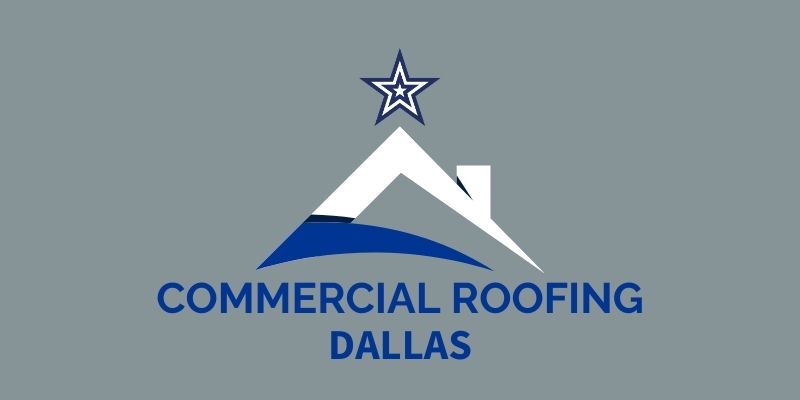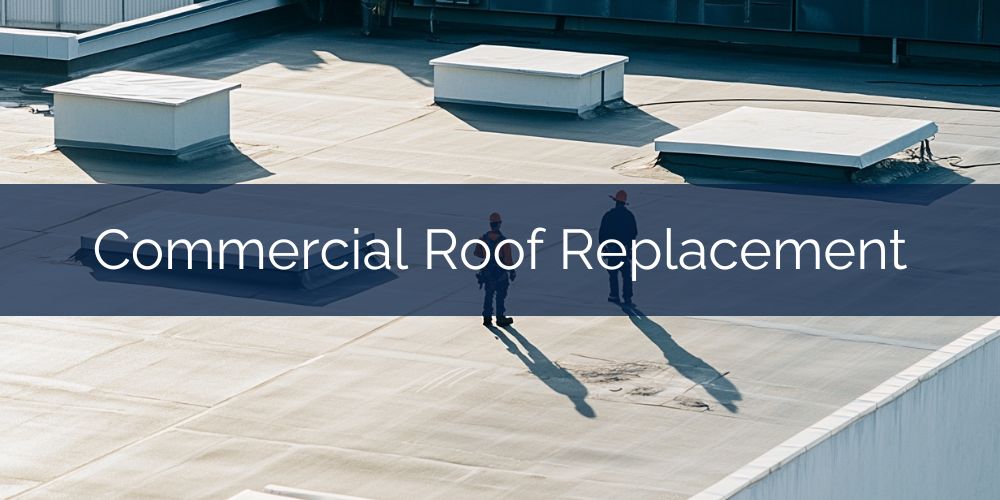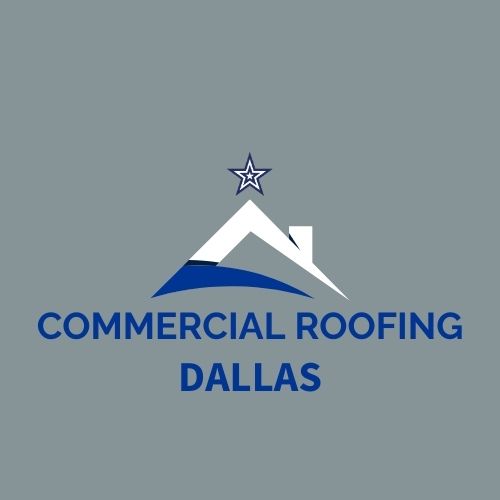Commercial roof replacement involves the removal and replacement of the entire roofing system on commercial properties, such as office buildings, warehouses, and retail centers. This process may be required due to damage, wear and tear, or to improve energy efficiency and aesthetic appeal. Unlike residential roofs, commercial roof systems typically feature flat or low-slope designs and utilize materials such as TPO, PVC, EPDM, and metal. The goal of a commercial roof replacement is to ensure enhanced durability, weather resiliency, and long-term performance. Commercial Roofing Dallas provide commercial roof replacement services across the Dallas, Texas area.
What Is Commercial Roof Replacement?
Commercial roof replacement involves the complete removal and substitution of a commercial building's roofing system with new materials and installations. This process is essential when the existing roof has reached the end of its life expectancy, has undergone excessive weather damage, or requires energy efficiency improvements. It ensures that the structure is protected from environmental factors such as rain, wind, and extreme temperatures that can exacerbate underlying issues. During roof replacement, several types of roofing materials like EPDM, TPO, PVC, or modified bitumen are considered based on the building’s needs, budget, and local climate. The project typically requires skilled labor and proper planning to manage disruptions to the business operations taking place within the building. Typically, it's essential to work with professional roofing contractors who understand the specific requirements of commercial properties and can ensure compliance with both manufacturer guidelines and local building codes.
In Dallas, Texas, commercial roof replacement is influenced by weather conditions such as high temperatures, which can reach up to 100°F in the summer, and average annual precipitation of around 39 inches. Consequently, roofing materials that offer excellent UV resistance and thermal insulation are especially valued, with installation techniques adapted to handle the variable weather demands and ensure long-term durability.
Have a question about an upcoming project?
What Are The Costs Of Commercial Roof Replacement In Dallas?
The cost of commercial roof replacement in Dallas typically ranges from $5 to $12 per square foot. Several factors influence this cost, including the type of roofing material selected, the complexity of the roof design, and the overall size of the roof. Additionally, local labor rates and the specific requirements of the roofing project, such as permits and disposal, can also affect the total expenses.
- Roofing Material: Different materials have varying costs and installation complexities.
- Roof Size: Larger roofs result in higher overall replacement costs.
- Roof Design Complexity: Complex designs can increase labor and material requirements.
- Local Labor Rates: Workforce costs vary depending on the region and demand.
- Permits and Regulations: Compliance with local codes can add to project expenses.
1. Roofing Material: Different materials have varying costs and installation complexities
Roofing materials are the various types of substances or composites used for covering roofs, each with unique cost implications and installation challenges. Choosing the right roofing material is crucial for understanding the costs associated with commercial roof replacement in Dallas. The expense largely depends on the material selected, as some materials are more costly and labor-intensive to install than others. A thorough evaluation of options, including metal, TPO, EPDM, and built-up roofing (BUR), allows property owners to make informed choices that balance budget constraints and functional needs. Additionally, the complexity of installation can affect labor costs and the potential for future maintenance requirements, so considering installation intricacies is essential. By selecting an appropriate material, businesses can manage expenditure while ensuring optimal performance and durability.
2. Roof Size: Larger roofs result in higher overall replacement costs.
Larger commercial roof sizes entail greater material and labor expenses due to the increased area requiring replacement. Larger roof sizes significantly impact the cost of commercial roof replacement in cities like Dallas, as they require more materials and labor, leading to higher overall expenses. For businesses considering a roof replacement, understanding how size influences cost can help in budgeting and planning for such a significant investment. Additionally, larger roofs often involve more complex installation logistics, which can increase the difficulty and duration of a project. This complexity necessitates hiring experienced professionals to ensure quality and minimize disruption to business operations. Factoring in these considerations is essential for property managers aiming to manage expenses while ensuring the long-term performance of their commercial roofing investment.
3. Roof Design Complexity: Complex designs can increase labor and material requirements.
Roof design complexity refers to the intricacy of the roofing structure, which directly impacts the amount of labor and materials required for commercial roofing projects. Commercial roof replacement costs in Dallas are heavily influenced by the complexity of the roof design because intricate designs demand more skilled labor and additional materials. This can significantly elevate overall project expenses, pushing up the budget compared to simpler, less labor-intensive roofing solutions. Complex roof designs might include numerous angles, elevations, or features such as skylights, all of which add to installation time and materials used. These complexities also require specialized expertise to ensure proper installation and long-term durability, which can limit contractor options and increase labor costs. Proper planning and careful selection of experienced roofing contractors can help manage these increased costs and ensure the project is completed efficiently.
4. Local Labor Rates: Workforce costs vary depending on the region and demand.
Local labor rates in commercial roofing refer to the variability in workforce costs influenced by regional economic conditions and the demand for skilled workers. Labor costs can significantly impact the overall expenses of commercial roof replacement in Dallas due to the city's strong economic growth and high demand for construction services. Given these factors, labor rates may be higher when compared to other regions, influencing the total project cost. This variability underscores the importance of obtaining detailed quotes from multiple contractors to understand labor components of the pricing. Additionally, contractors may offer different levels of expertise and experience, affecting both the cost and quality of the roofing work. Understanding local labor market dynamics is crucial for budget planning and ensuring the selection of the right contractor for specific roofing needs.
5. Permits and Regulations: Compliance with local codes can add to project expenses
Permits and regulations refer to the legal requirements and building codes that must be adhered to, which can increase the overall cost of a commercial roofing project. For commercial roof replacement in Dallas, navigating the local building codes and obtaining necessary permits are crucial steps that impact the project's cost. Compliance ensures that the roofing work meets safety standards and municipal regulations, potentially leading to additional time and labor costs. Working with roofing professionals who are familiar with Dallas's specific requirements can help streamline the process and avoid costly delays. Moreover, understanding the local codes in advance facilitates more accurate budgeting and project planning. This proactive approach can mitigate unexpected expenses and ensure the roofing project is completed efficiently and legally.
How Does Dallas Weather Impact Commercial Roof Replacement Needs?
Dallas weather, characterized by intense heat, severe storms, and occasional ice, significantly impacts commercial roof replacement needs. The extreme temperature fluctuations can cause thermal expansion and contraction of roofing materials, leading to potential cracks and leaks. Additionally, severe weather events like hail and heavy rain can cause direct physical damage to roofs, necessitating more frequent inspections and repairs.
- Temperature Fluctuations: Frequent extremes cause roofing materials to expand and contract, risking damage.
- Intense Heat: Prolonged exposure leads to material degradation and reduced roof lifespan.
- Severe Storms: High winds and hail can inflict direct damage requiring urgent repairs.
- Heavy Rain: Persistent rain may lead to water pooling, resulting in leaks and structural issues.
- Ice and Snow: Occasional ice storms can contribute to ice dam formation, causing roof leaks.
1. Temperature Fluctuations: Frequent extremes cause roofing materials to expand and contract, risking damage.
Temperature fluctuations refer to the rapid changes in temperature that lead to expansion and contraction of roofing materials, which can cause structural stress and potential damage over time. Dallas weather, with its frequent temperature swings, exacerbates these issues for commercial roofs by accelerating wear on materials. Constant cycling between expansion and contraction can lead to stress fractures and separation in roofing membranes, ultimately affecting the structural integrity of the roof itself. Applying highly flexible roofing materials or thermal-resistant layers can help mitigate these effects by accommodating thermal movement without compromising the material. Additionally, regular inspections and preventative maintenance enable the early detection of expansion-related damage such as splitting or seam failure, allowing owners to address issues before they escalate. Investing in these strategies helps prolong the life of a commercial roof in environments with extreme temperature variations like Dallas.
2. Intense Heat: Prolonged exposure leads to material degradation and reduced roof lifespan.
Intense heat causes roofing materials to expand and contract, leading to cracks, loss of structural integrity, and a shorter roof lifespan. Dallas is known for its hot, sunny climate, which means commercial roofs are frequently subjected to intense heat that accelerates wear and tear. This constant exposure leads to material breakdown, making timely roof replacement or repair crucial for maintaining structural integrity and performance. Choosing heat-resistant roofing materials, such as those with reflective surfaces or high insulation properties, can mitigate the damaging effects of intense heat. Regular maintenance and inspections can also help identify heat-related damage early, allowing for proactive interventions. Implementing these measures can prolong a commercial roof's lifespan and prevent costly replacements.
3. Severe Storms: High winds and hail can inflict direct damage requiring urgent repairs
Severe storms involve extreme weather conditions such as high winds and hail that can cause immediate and significant damage to commercial roofing structures, necessitating prompt repairs to prevent further deterioration and maintain building integrity. Dallas weather frequently includes severe storms, which can have a direct impact on the demand for commercial roof replacement. High winds can dislodge roofing materials, while hail can puncture roof surfaces, both of which require urgent attention to protect the underlying structure. Regular maintenance and timely inspection are crucial to identify any storm-related damages early, minimizing the need for extensive roof replacement. Implementing protective measures such as impact-resistant roofing materials can help withstand severe weather conditions, reducing the overall impact of storms on roofing systems. Additionally, having an emergency response plan can expedite repairs, ensuring the roof's integrity is restored swiftly after a storm event.
4. Heavy Rain: Persistent rain may lead to water pooling, resulting in leaks and structural issues.
Heavy rain refers to the continuous rainfall that creates standing water on commercial roofs, potentially leading to leaks and structural damage if not properly managed. The impact of heavy rain is particularly relevant for commercial roofing in Dallas, where intense storms and prolonged downpours can lead to water accumulation on flat and low-slope roofs. This pooling can cause significant stress on roofing materials, increasing the likelihood of leaks and reducing the overall lifespan of the roof. When considering roof replacement needs, it's crucial to select materials and drainage systems that effectively handle the high precipitation levels encountered during Dallas's storm seasons. Ensuring proper drainage design and regularly cleaning gutters and downspouts can prevent water from pooling excessively on roof surfaces. Reinforcing joints and seams with waterproof coatings or sealants adds an additional layer of protection against leaks. Frequent inspections help identify potential vulnerabilities early, allowing for timely interventions to maintain structural integrity and avoid costly water-related damages.
5. Ice and Snow: Occasional ice storms can contribute to ice dam formation, causing roof leaks
Ice and snow can create ice dams on flat commercial roofs during winter storms, leading to water damage and leaks. Dallas weather, though generally mild, can occasionally bring ice storms that lead to ice dam formation on commercial roofs, especially those with inadequate drainage. These ice dams occur when melting snow refreezes at the roof edge and creates a barrier that prevents proper water runoff, leading to leaks and potential interior damage. To mitigate the risk of ice dams, it's crucial to ensure that commercial roofs have adequate insulation and drainage systems. Regular maintenance and immediate removal of snow accumulation can also prevent ice dam formation and subsequent water infiltration. Implementing these preventive measures helps maintain the integrity of the roof and prolongs its lifespan, reducing the overall need for costly repairs or replacements.
Which Materials Are Best For Commercial Roofs In Dallas?
The best materials for commercial roofs in Dallas are TPO, EPDM, PVC, metal, and modified bitumen. Dallas's climate demands roofing solutions that offer strong UV reflectance and heat resistance to handle hot summers and occasional severe storms. Moreover, energy efficiency and longevity are crucial factors that can help businesses reduce operational costs and ensure durability.
- Thermoplastic Polyolefin (TPO): Offers excellent energy efficiency and UV resistance.
- Ethylene Propylene Diene Monomer (EPDM): Known for durability and weather resistance.
- Polyvinyl Chloride (PVC): Provides strong chemical resistance and energy-saving benefits.
- Metal Roofing: Highly durable and ideal for sun and rain protection.
- Modified Bitumen: Excellent choice for waterproofing and flexibility against temperature changes.
1. Thermoplastic Polyolefin (TPO): Offers excellent energy efficiency and UV resistance
Thermoplastic Polyolefin (TPO) is a single-ply roofing membrane known for its ability to reflect sunlight, reducing energy consumption and prolonging roof lifespan by resisting UV damage. The reflective properties of TPO make it an excellent choice for commercial roofs in Dallas, where high temperatures and sun exposure are prevalent. By minimizing heat absorption, TPO helps lower cooling costs and enhances indoor comfort, aligning with the need for energy-efficient solutions in warmer climates. In addition to its energy efficiency, TPO’s resistance to UV radiation prevents roof degradation, ensuring longevity and reducing maintenance costs. Its lightweight nature also makes it suitable for various roof structures without compromising strength or performance, a critical advantage for the diverse architectural designs found in commercial roofing applications.
2. Ethylene Propylene Diene Monomer (EPDM): Known for durability and weather resistance
EPDM is a synthetic rubber roofing membrane praised for its exceptional resilience to the elements and long-lasting performance. Its durability and weather resistance make EPDM an excellent option for commercial roofs in Dallas, particularly where extreme weather variations can pose significant challenges. The material’s inherent flexibility and resistance to UV radiation help to protect the building structure from damage caused by harsh weather conditions, ensuring a longer lifespan for the roof. EPDM is particularly advantageous in environments subject to heavy rainfall or temperature fluctuations, as it maintains its integrity and waterproofing capabilities under such conditions. Regular maintenance, such as inspections to check for punctures or seam issues, can further enhance EPDM’s performance. By selecting EPDM, property owners can ensure a cost-effective, durable roofing solution tailored to meet the demands of Dallas's climate.
3. Polyvinyl Chloride (PVC): Provides strong chemical resistance and energy-saving benefits.
Polyvinyl Chloride (PVC) roofing is a single-ply material known for its excellent chemical resistance, durability, and ability to reflect solar energy, contributing to energy savings. In regions like Dallas, where commercial roofs are exposed to harsh weather conditions and fluctuating temperatures, a PVC roof can offer superior protection against chemical exposures and heat-related wear. These properties make PVC an ideal material for maintaining building integrity and reducing energy consumption in commercial settings. PVC roofing membranes are often favored for their resistance to acids, oils, and industrial pollutants, making them suitable for environments with higher chemical exposures. Additionally, the reflective surface of PVC helps to reduce the heat absorption, contributing to lower cooling costs and enhanced energy efficiency in buildings. Regular maintenance and inspections will further ensure that a PVC roof performs optimally over its lifespan, safeguarding both the building and energy efficiency.
4. Metal Roofing: Highly durable and ideal for sun and rain protection
Metal roofing provides exceptional durability and protection against harsh weather conditions, including intense sunlight and heavy rainfall, making it ideal for commercial buildings. Given Dallas's variable climate, which includes sunny days and occasional heavy rain, metal roofing’s ability to withstand both extremes makes it a suitable choice for commercial roofs. Its reflective properties help mitigate heat absorption, thus aiding in maintaining cooler interior temperatures and reducing energy costs. Additionally, metal roofing is known for its long lifespan and low maintenance requirements, which can provide long-term cost savings for commercial property owners. Metal roofs are often made from recycled materials and are themselves recyclable, supporting sustainable building practices which is an increasing consideration for modern commercial developments. Implementing a metal roofing system can improve the sustainability profile of a commercial building while providing reliable weather protection.
5. Modified Bitumen: Excellent choice for waterproofing and flexibility against temperature changes.
Modified bitumen is a type of roofing material that combines traditional asphalt with polymer modifiers, enhancing its waterproofing capabilities and providing elasticity to withstand temperature fluctuations. Modified bitumen is a popular roofing choice in Dallas due to its robust waterproofing properties and flexibility, which excel in climates with temperature variability. This ensures reliable protection against water intrusion while accommodating thermal expansion and contraction, essential for maintaining a building's structural integrity. Additionally, the inherent resilience of modified bitumen against weather extremes can help prolong the roof's lifespan, reducing the need for frequent repairs or replacements. Employing modified bitumen in commercial roofing projects can also offer cost benefits, as its durability minimizes maintenance expenses. When adequately installed and maintained, modified bitumen roofing systems contribute significantly to the sustainability and efficiency of commercial buildings.


